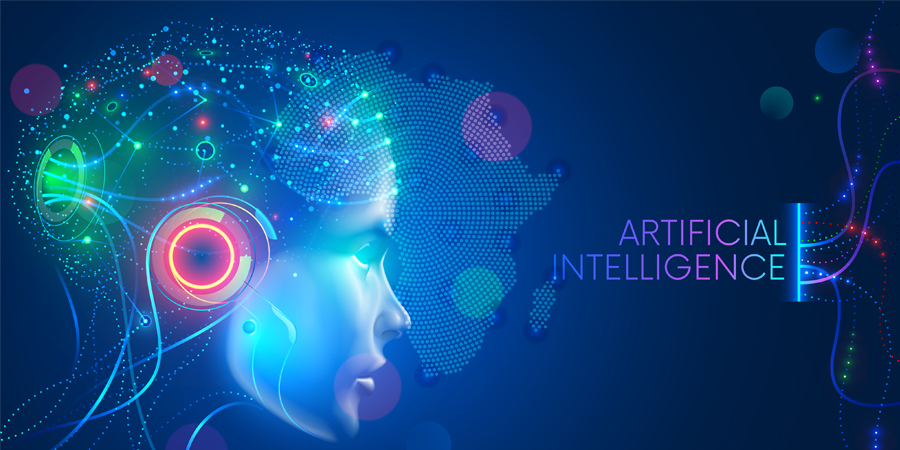It has become clear by now that Africa is ready to seize the opportunities presented by digital technologies. Emerging technologies are set to drive the continent’s digital economy, including artificial intelligence. However, challenges are still undermining the rapid adoption of AI in all sectors and preventing it from harnessing the full potential of transformative technologies.
By 2030, artificial intelligence (AI) will add $15.7 trillion to the global GDP, with $6.6 trillion projected to be from increased productivity and $9.1 trillion from consumption effects, according to a report by PwC. The same report shows that AI will drive productivity and diversity which will lead to economic gains of which 45% will come from product enhancements, stimulating consumer demand.
According to Audrey Azoulay, director general of the United Nations Educational, Scientific and Cultural Organization (UNESCO), “Artificial intelligence can help us advance more rapidly towards the achievement of the SDGs by allowing better risk assessment, enabling more accurate forecasting and faster knowledge sharing, by offering innovative solutions in the fields of education, health, ecology, urbanism and the creative industries and by improving standards of living and our daily well-being.”
Leveraging artificial intelligence
Africa is leveraging artificial intelligence as a means to face the problems that could be encountered in several sectors. The financial sector is one of the sectors benefiting from the technology. AI-powered chatbots are becoming the norm is many banks across the continent. Furthermore, artificial intelligence can also be integrated in credit rating systems in Africa to gather and then evaluate data of potential clients to make the correct lending decisions.
E-commerce is also one of the main sectors that are leveraging artificial intelligence in Africa. In fact, online shopping applications are using the technology to provide customers with a seamless shopping experience that can be as “virtually real” as possible. Features include for example filters that allow customers to try out items before deciding whether to buy or not.
Artificial intelligence is also used nowadays in Africa in the agriculture industry whereby agriculture companies are combining machine learning with advanced algorithms to leverage genomic precision in livestock production models. This can pave the way for the elaboration of intelligent breeding programs that allow farmers to choose the correct genetic characteristics at the early stage of the livestock production process.
The healthcare sector can benefit the most from artificial intelligence whether at level of diagnostics or treatment. AI-powered diagnostics use the patient’s unique history as a baseline against which small deviations flag a possible health condition in need of further investigation and treatment.
Challenges persist
Despite that Africa has already embarked on its AI journey, however challenges persist. Perhaps the most challenging obstacle lies at the level of the inadequate basic and digital infrastructure that is slowing down efforts to activate AI. Access to advanced technology in Africa is constrained by infrastructure parameters such as lack of electricity and low tele-density, internet density, and broadband penetration. But it’s not only about infrastructure, a great gap still exists at the level of technical skills required to be able to implement artificial intelligence strategies.
A one-year master’s degree program was launched, for instance, in Rwanda to train the next generation of AI talent. “The vast majority of active [machine intelligence] researchers and practitioners are in North America, Europe and Asia, while large regions, including Africa, are hardly represented,” wrote Moustapha Cisse - who had to leave the continent for graduate school and complete his Ph.D in machine learning in France - in a letter introducing the program.
Moreover, Africa still needs to invest in research and development. The continent should develop innovative financial instruments and public-private partnerships to be able to establish innovation hubs and fund industrial research in order to ensure innovation and implementation of AI products and solutions.
In order to overcome all the aforementioned challenges and leverage the opportunities presented by artificial intelligence, Africa has to draft a comprehensive AI strategy that involves key Pan-African institutions, academia, and the private and public sectors.
Intelligence goes in tandem with the adequate technologies deployed by skilled talents in the framework of a harmonized regulatory environment that encourages ethically built AI systems. Being at the forefront of the fourth industrial revolution is strictly linked to these specific steps that need to be taken at the level of the whole continent.
Artificial intelligence is attracting interest in Africa given its transformational impact at both the social and economic levels. We have seen success stories in several African continents that are leading the way in AI excellence and other countries should follow suit.
